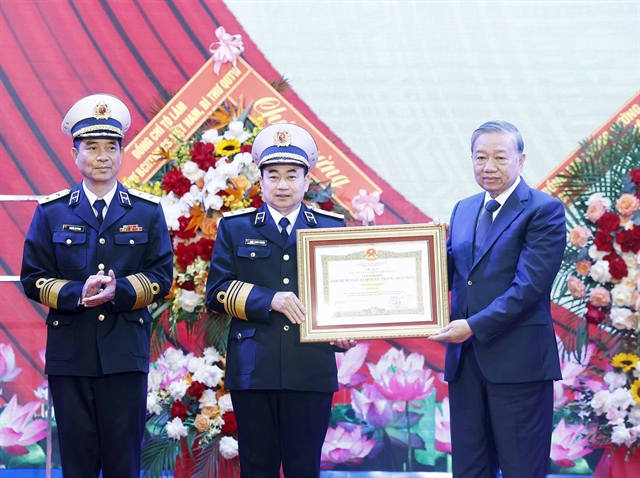 Society
Society

 |
| A worker searches for a job at a job fair in HCM City. — VNA/VNS Photo |
HÀ NỘI — Việt Nam’s job market is forecast to expand significantly in 2025, with strong demand projected in key sectors including information technology, artificial intelligence, renewable energy and digital transformation, according to TopCV, one of the country’s leading recruitment platforms.
TopCV predicts that roles such as software developers, data analysts and cybersecurity engineers will dominate the labour market in the technology sector.
Meanwhile, manufacturing and logistics industries are expected to prioritise recruitment of automation engineers, supply chain managers and quality control specialists to optimise processes and integrate new technologies.
The renewable energy and green economy sectors also show promise, with high demand anticipated for environmental engineers, clean energy developers and sustainable project managers as Việt Nam intensifies its shift toward sustainability.
E-commerce and customer service industries are likely to maintain robust hiring trends. Positions like digital marketing specialists, customer experience managers and support professionals will be key as businesses adapt to increasing consumer demand and accelerated digitisation.
In traditional sectors, growth is also on the horizon. TopCV forecasts recruitment in wholesale and retail will rise by 4.5 per cent, manufacturing by 5 per cent and banking, finance and insurance by 3 per cent.
Experts emphasise the importance of upskilling in the face of rapid technological advancements and widespread digital transformation. Job seekers are urged to enhance their competencies to stay competitive in the evolving market.
"2025 will present numerous opportunities for workers as Việt Nam continues to be a magnet for foreign investment in the region and globally," a Department of Employment representative under the Ministry of Labour, Invalids and Social Affairs said.
However, unskilled labourers may face higher risks of reduced income or job displacement due to automation and AI integration.
Labour force participation may also decline as workers exit the market in response to job losses stemming from shifts to automated and AI-driven production models.
"The biggest challenge is the weak capacity for career transitions among workers due to limited market information and skill gaps," said Department Director Vũ Trọng Bình.
Nguyễn Thị Thu Phương, permanent eecruitment director at Adecco Vietnam, underscored the need for career orientation based on market demand and personal growth potential, rather than passion alone.
"Given the rapid development of the digital economy, workers should focus on tech-related skills like data analysis and AI tool proficiency," Phương noted, adding that remote and hybrid work models require strong digital communication skills and flexibility.
She also emphasised that the job market this year will present both challenges and opportunities, particularly for individuals willing to embrace change and enhance their skills. Success, she suggested, will depend on understanding emerging trends, identifying areas of demand and proactively acquiring the necessary competencies.
Hà Nội's Centre for Employment Services reported labour shortages primarily in high-skilled fields such as IT, engineering and healthcare. While unskilled labour supply remains abundant, challenges persist in health, training and aligning income with business needs.
Salary expectations in Hà Nội range from VNĐ7 million to VNĐ15 million (US$280 to $600) monthly for most positions, while skilled roles in IT and finance command upwards of VNĐ20 million ($800).
"Workers with advanced qualifications or specialised skills often earn incomes that are significantly above average,” said Vũ Quang Thành, deputy director of the centre.
Hà Nội's Department of Labour, Invalids and Social Affairs aims to create 169,000 jobs in 2025, focusing on skilled and specialised labour to meet the city’s economic goals. — VNS




